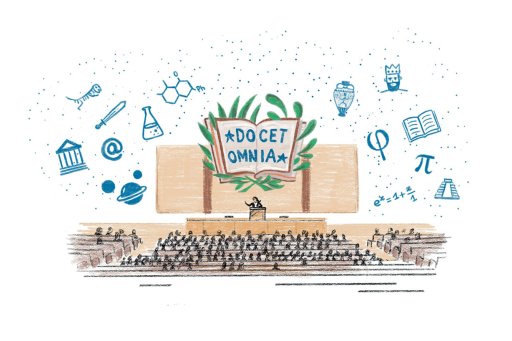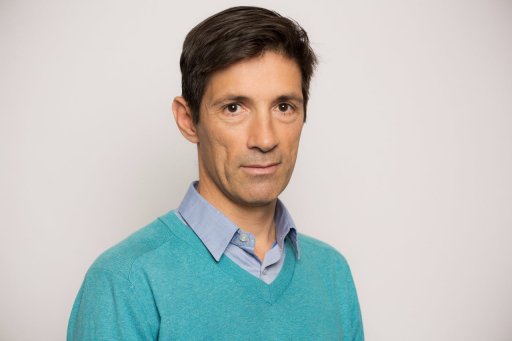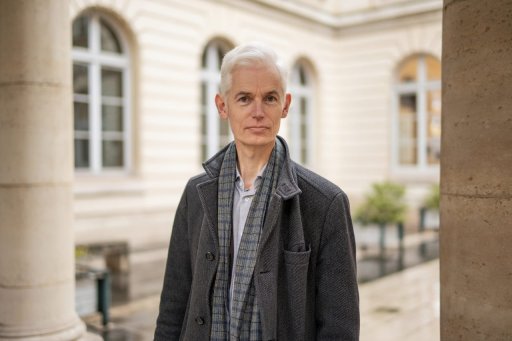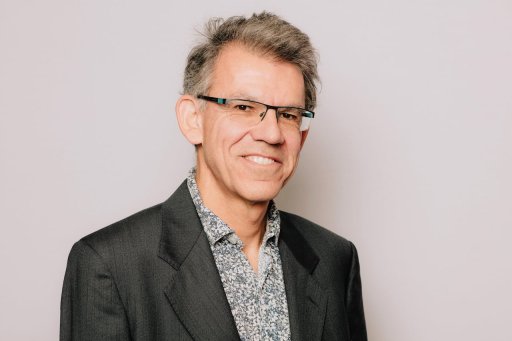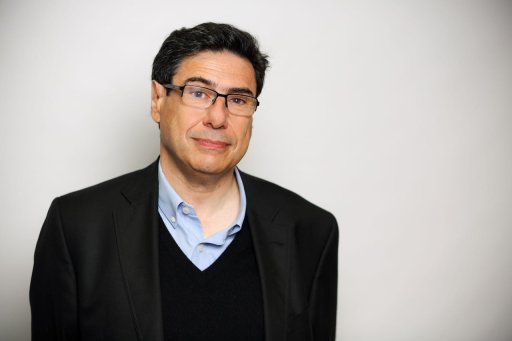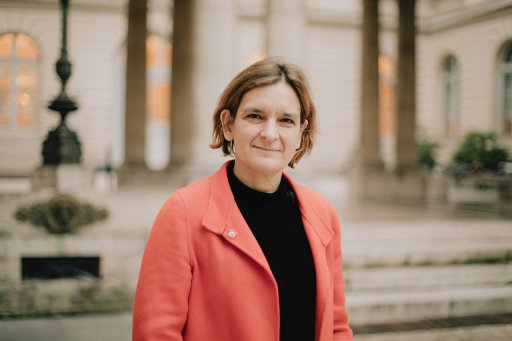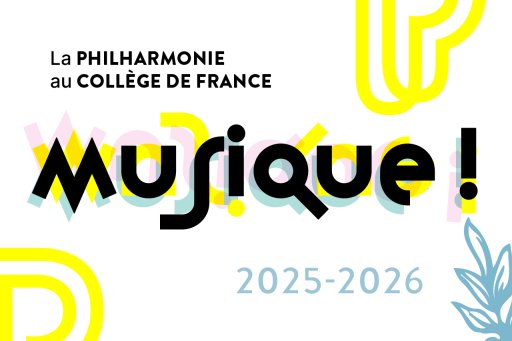![[alt_b4f613b7-5548-440b-ad49-48013567b050]](/media/chercheurs/UPL2536257738602517394_Odile_Chatirichvili.jpg)
What is your thesis about?
My thesis consists of a comparative study of autobiographical texts written in the 20th and 21st centuries, in French and English, by mathematicians Edward Frenkel, Alexandre Grothendieck, Paul Richard Halmos, Jacques Roubaud and Laurent Schwartz.
The writings of mathematicians are usually highly specialized articles, accessible to a handful of insiders. At the end of their careers, however, some mathematicians write an autobiography that presents themselves as accessible to the general public.
Originally, my thesis topic covered the so-called "hard" sciences in general. However, I realized that the subject was too vast and the ways of thinking between the disciplines too different. I gradually narrowed my focus to mathematicians for several reasons, the first being that my father is a mathematics teacher. He used to tell me lots of stories about theories, researchers and so on
And then I wondered : how can we talk about science, and therefore about something that is difficult for the average person to understand ? And how does one construct stories in a scientific field where, a priori, narrativity is absent ?
When it comes to abstraction and rigor, mathematics is a cut above the rest of the sciences. And with equations, we've reached a stage where there aren't even any words - we can no longer read in the usual way. So it was a bit of a challenge to take mathematicians as an object of study.
In concrete terms, what are you trying to highlight ?
My aim is to understand what these autobiographies are about, and to compare them.
For example, one of the themes that interests me is the moment of mathematical discovery. In science, there's a " commonplace " : the image of the " eurêka ", the Greek scientist Archimedes who suddenly, in his bathtub, has the revelation, more precisely, of the law linking the density and buoyancy of an object placed in water (what we call the " Archimedes' thrust "). There's a whole series of parameters that can be found in many stories of discovery : the scream, the unexpected moment, the mix of emotions..
I looked at how this commonplace manifests itself in the autobiographies of mathematicians. In fact, these stories, built up over a long period of time, show that the revelation is based on days, months and even years of cogitation, blockages, errors, detours... It's a really long process, sometimes complicated and frustrating, which depends on the previous and collective work of their peers and predecessors.
Autobiography allows us to reconstitute the entire path of thought, unlike scientific articles, which are more direct, going from point A to point B.
I'm also looking at other aspects, such as vocation narratives or the co-presence of several languages in writing, including this mathematical " language ".
Why did you choose Comparative Literatures ?
I was very interested in literature from an early age : when I was little, I wanted to be a writer. My parents encouraged me to acquire a little scientific background, so I took a baccalauréat S - specializing in SVT, the most " literary " of all the specializations! I went on to study a literary preparatory class in Strasbourg - hypokhâgne then khâgne. Above all, I wanted to read and study literature, and I really liked the way the khâgne was very multidisciplinary. After that, I entered the École normale supérieure (ENS) on rue d'Ulm in Paris. There, I did a Master's degree 1 in comparative literature on the Franco-German literary bilingualism of three Alsatian poets. I consulted their texts in French and German, two languages I speak fluently. Going into comparative literature was a logical step for me, as it's a discipline that pays a great deal of attention to the relationship between languages, and to questions of translation.
![[alt_cd9864d0-facc-4797-ab90-5a271c52a4bc]](/media/chercheurs/UPL7811103694330417327_Odile_Chatirichvili_lecture.jpg)
What triggered your orientation towards more scientific works ?
At the ENS, you have the possibility of taking a break from your university studies to try out other things. This is what I did for a year between the 1 master's degree and the 2 master's degree. The aim was to see what was out there outside the academic world, in the book and publishing worlds, which have always intrigued me. I decided to do some internships, including one at Actes Sud. There I worked, among other things, on the publication of a translation of Judith Schalansky's German novel Der Hals der Giraffe . I loved the book and returned to research in my Master's degree, with a view to exploring the questions raised by the book, which was about a biology teacher. I wrote my Master's dissertation 2 on the theme of the inclusion of scientific discourse in contemporary literature, with a corpus made up of this novel and three other novelistic and autobiographical texts.
You wished to pursue a doctorate in order to deepen the field of your master's thesis 2..
Before I started, I took a year off to prepare for and pass the agrégation in modern literature, as it's tacitly recognized that to get a doctoral contract in literature, you need the agrégation.
I then prepared my project and got in touch with Isabelle Krzywkowski, who was to become my thesis supervisor in Grenoble, and who specializes in the imaginary of science, technology and work in contemporary literature. Many researchers focus on the relationship between literature and science, but usually in the 17th-18th centuries, when science could still be explained in everyday terms. I wanted to know what happens when science becomes hyperspecialized, but we still want to talk about it.
After several months of reflection, readings and discussions with my supervisor, I built this research topic around the autobiographies of contemporary mathematicians. It was quite broad at the outset : there were chemists, biologists, physicists... Many scientists have written texts recounting their lives. These are sources used by historians and sociologists, but still neglected by literary critics.
How did you go about writing your thesis ?
I did a lot of research, I read a lot, I gave and attended conferences, I wrote articles to test a few concepts... I also met with mathematicians, sociologists, historians of mathematics, literary researchers... And then I wrote. It wasn't easy, and the Covid-19 pandemic didn't help !
Theses in the humanities often last a long time. I had initial funding from the ENS for the first three years, and for the following years I juggled a Young Researcher prize, help from my parents and a teaching post at the University of Toulouse, to live and continue the PhD in parallel.
At the start of the sixth year, in September 2021, I took up my post as ATER at the Collège de France in Pierre-Michel Menger's Sociology of Creative Work chair. This brings me a whole new perspective and is a great source of food for thought. Unlike a sociologist, my material is the text. I'm not trying to give models of what mathematicians do, but to explain how they construct their history, in a particular literary genre.
Did you enjoy the experience ?
Yes, researching literature requires skills that suit me well, such as being able to read quickly, or manipulate words to formulate what I'm thinking as well as possible. Sometimes I reread my work and say to myself : " ah yes, that's what I wanted to express ! " I love the " writing that brings out ideas " aspect of my work.
This research is also rather solitary, even if I've tried to keep in touch with colleagues from various disciplines, through physical work sessions in the library, or virtual ones via videoconferencing. This allows you to get out of your own head for a while and get unstuck, by discussing and listening to opinions.
My thesis journey was punctuated by moments of discouragement, but I always put my physical and mental health first. It was important for me to maintain a balance between my professional and personal life, and above all to be well supported.
----------
Odile Chatirichvili is an ATER with the Sociology of Creative Work chair held by Pr Pierre-Michel Menger. She is also a doctoral student at theUMR Litt&Arts at Grenoble Alpes University, under the supervision of Isabelle Krzywkowski. Her thesis is entitled " Récits de science, récits de soi. Étude comparée de cinq autobiographies de mathématiciens du XXe siècle à nos jours ".
Photos © Patrick Imbert
Interview by Océane Alouda



